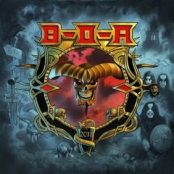Whilst sitting twiddling my thumbs this afternoon, in one of those mood where you have lots to do but don’t want to do anything, yet find sitting and doing nothing completely intolerable, I wasted some time working out some musical possibilities.
There are 12 notes to the octave, and about 10 useful octaves – useful as in humans can hear them. Any higher or lower and you and me won’t know it’s there, so they not much use in your latest opus. That, if my barely-passed-my-GCSE-maths calculations are correct, comes to 120 pitches that are of use to us, using the standard western tuning system. So, let’s get the ball rolling, and see how many tunes we need to write before music runs out! If we want to write two notes in a row, we have 120 x 120 possible options.
That’s 14,400 combinations right there.
If we move up to five notes in a row (like the famous tones from Close Encounters) we have 120 x 120 x 120 x 120 x 120 possibilities.
That leads to 24,883,200,000 different 5-note tunes. That doesn’t even take into account other parameters like rhythm…or harmony.
If each of those notes lasts one second, it would take about 790 years to listen to every single option.
(If you want to experiment with quarter tones, feel free to double all these numbers!)
This is why music will never run out – the possibilities are essentially limitless – plus, no one will ever come close to hearing even 1% of all the music ever made. You will never hear, even if you try really hard, the vast majority of extant music.
Which is sort of depressing, and I still don’t feel like getting on with all that stuff I need to do, either.
About Dave.
David Learnt composition (harmony, counterpoint and orchestration) to degree level through studying Schoenbergs Fundamentals of Musical Composition. He is a founder member of Avant Pop duo Cnut, and orchestral doombience outfit Regolith.
Make Better Music is updated every Tuesday. To catch up on the series search for ‘Dave Graham’.
Image: Francesco Marino / FreeDigitalPhotos.net

David Learnt composition (harmony, counterpoint and orchestration) to degree level through studying Schoenbergs Fundamentals of Musical Composition, the classic text on twentieth century harmony by Vincent Persichetti, Henry Mancini’s Sounds and Scores, Rimsky-Korsakov’s excellent books on orchestration as well as studying any scores that intrigued me. He is a founder member of two bands, avant pop duo Cnut, and orchestral doombience outfit Regolith, and have performed across Europe with them.




















